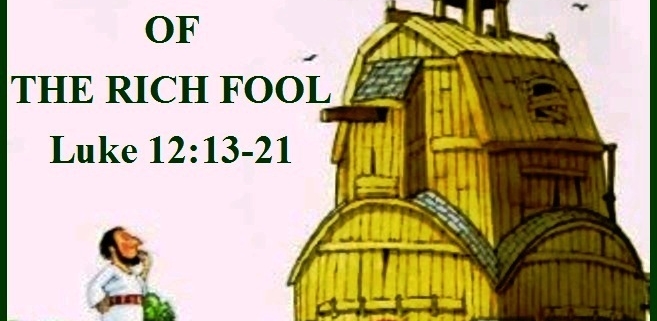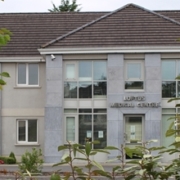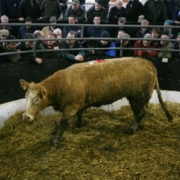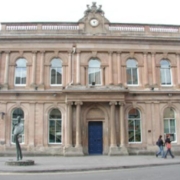The Gospel 31.7.2022
“Teacher, tell my brother to share the inheritance with me.”
He replied to him,
“Friend, who appointed me as your judge and arbitrator?”
Then he said to the crowd,
“Take care to guard against all greed,
for though one may be rich,
one’s life does not consist of possessions.”Then he told them a parable.
“There was a rich man whose land produced a bountiful harvest.
He asked himself, ‘What shall I do,
for I do not have space to store my harvest?’
And he said, ‘This is what I shall do:
I shall tear down my barns and build larger ones.
There I shall store all my grain and other goods
and I shall say to myself, “Now as for you,
you have so many good things stored up for many years,
rest, eat, drink, be merry!”’
But God said to him,
‘You fool, this night your life will be demanded of you;
and the things you have prepared, to whom will they belong?’
Thus will it be for all who store up treasure for themselves
but are not rich in what matters to God.”
The making of a will is one of the important acts of adulthood. We can be rather reluctant to sit down and make our will. To do so is to acknowledge in a very concrete way that we are mortal, that one day we will leave our possessions to others. The author of the book of Qoheleth saw this as part of the meaninglessness of life – ‘a person who has laboured… must leave what is his own to someone who has not toiled for it at all’. Yet, there can be great meaning in the act of leaving what is our own to those who have not laboured for it. In making our will, we are deciding how our earthly possessions at the time of death will be divided and distributed. The decisions we make in regard to our will speak volumes about who and what we really value in life. We leave our possessions to the people and the causes that are most significant for us. Our will is a statement of our loves and passions, our values and interests.
When a will is not made or when it is unclear, trouble very often ensues, as family members attempt to interpret what the deceased person really intended. Non-family members can easily get drawn into the family quarrel. We don’t always welcome it when someone asks us to get involved in a family dispute. We probably sense that if we are not careful we could make matters worse. In the gospel reading, a man asks Jesus to take his side in a dispute he has with his brother over a family inheritance. Jesus was being asked, ‘Side with me against my brother’. There was another occasion when Jesus was asked to side with someone against a sister. Jesus was very friendly with Mary and Martha. Martha asked Jesus to side with her against her sister Mary, who was sitting at Jesus’ feet listening to him speaking. Martha felt that Mary had left her all alone to do the serving. Jesus did not take Martha’s side against Mary, but suggested that Martha had something to learn from Mary. In today’s gospel reading, Jesus did not take the man’s side against his brother in the dispute over the family inheritance. Instead, he gave the man a warning about greed, reminding him that we don’t find security in our possessions. It is not the case that the more we possess, the more secure our life is.
To show this, Jesus tells a story, a parable. Most of Jesus’ stories have several people in them. One of his great stories, the story of the prodigal son, has three people in it, the father and his two sons. The story of the Good Samaritan has five people in it, the man who was beaten up and left for dead, the priest, the Levite, the Samaritan and the inn keeper. However, the story Jesus tells in today’s gospel reading only has one person in it. This rich man doesn’t seem to interact with anyone. We don’t hear of other family members or neighbours or friends. He lives in his own world. When he speaks, he speaks to himself. He has been blessed with an unexpectedly rich harvest. His only thought is for himself. ‘Where am I going to store it all?’ The little word ‘my’ keeps cropping up in his conversation with himself, ‘my crops… my barns… my goods… my soul’. He lives for himself completely. It never occurs to him to ask, ‘How can I share my surplus with those who have nothing?’ It certainly never occurs to him to ask, ‘What would God want me to do with this huge surplus?’ God never comes into his thinking at all. However, in the story, God is present, even though the rich man has no awareness of God. The question that never occurred to the rich man was very important to God, ‘Who could benefit from this wonderful surplus that the earth has given?’ The rich man had forgotten that everything is a gift from God, including his very soul, his life. God now calls back his life, ‘This very night the demand will be made for your soul’. Where does the rich man stand at that moment? He is extremely rich in his possessions but he has not made himself rich in the sight of God. God looks at him and sees someone who is really very poor. He sees a life that has been wasted.
Jesus is saying to the man who wanted to involve him in a family dispute about inheritance that what really matters, at the end of the day, is to be rich in the sight of God. We find a very good example of someone who is rich in the sight of God in another of Jesus’ stories, the story of the Good Samaritan. He probably wasn’t a rich man, like the man in the story of today’s gospel reading, but he had some possessions. He had some money, he had oil and wine, he had a horse. More importantly, he had an eye for others, especially those in need. When he came upon the man who had been left half dead by robbers, he used his oil and wine, his horse and his money, to bring the half-dead man back to life. He became poorer so that someone else could become richer, richer in health and well-being. Whereas the rich man in today’s gospel reading invested in things, in bigger barns to store his abundant harvest, the Samaritan invested in people, in one particular broken human being that he came across by the roadside. The Samaritan used some of his possessions to serve others, because he recognized that everything was gift to be shared rather than private possessions to be hoarded. He was rich in the sight of God. The person who was supremely rich in the sight of God was Jesus. He had very little in the way of possessions; he had nowhere to lay his head. Yet, he gave everything he had, including his life, so that others would have life to the full. Jesus is the person we are all called to grow up into. He is our true treasure, his relationship with us and ours with him. As Paul says at the end of today’s second reading, ‘There is only Christ; he is everything and he is in everything’. It has been said that when we go before the Lord at the end of our lives we leave behind us everything we have and take with us everything we are and have become.
Take a minute to reflect on how other people see you. Does that image reflect what the Lord sees?
Are you happy if called by the Lord to him tomorrow , that you have carried out the Lords calling to the fullest of your abilities? Have you given your whole self for his cause?
Prayer:-
Lord of true riches, help me to always keep my heart set on the riches You bestow and to never settle for those things that can never fully satisfy me. I desire the wealth of Heaven, dear Lord, not the riches of Earth. I desire to live my life to spread your word and entice people back to our Church. I pray for the strength of the Holy Spirit to help me speak your word, to those hurt and not accepting of the word of God at this time. Help me to live the spiritual poverty I am called to live so as to obtain all that You desire for me. Free me from stubbornness, self importance, greed and selfishness and help me to find true joy in Your holy will. Jesus, I trust in You.
Taken in large part from Fr. Martins daily homilies.


 William G. Henry & Co., Solicitors
William G. Henry & Co., Solicitors Stewart Fuel Oils, Boyle
Stewart Fuel Oils, Boyle








